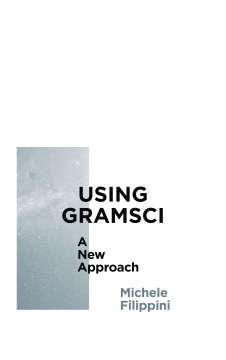
Additional Information
Book Details
Abstract
Thought of as one of the world's greatest political theorists, Antonio Gramsci's writings push readers to interpret and change the world. In Using Gramsci, Michele Filippini enlarges upon his seminal works, disentangling it from the prevailing orthodoxy in Gramscian analysis.
The book explores his work on ideology, the individual, collective organisms, crisis and temporality, in addition to the more traditional areas of his thought, such as hegemony and civil society. Through this close examination, the use value of Gramscian theoretical instruments to a broad range of disciplines, including, political science, education, language, cultural studies, postcolonial studies, anthropology and geography, becomes apparent. Filippini's approach explicates and emphasises the importance of one of the most popular and enduring Marxist figures.
'There is little doubt that Gramsci has become one of the most relevant thinkers of the 20th century influencing many fields of contemporary scholarship. Fillippini's Using Gramsci is a tribute to this'
Cosimo Zene, SOAS, University of London, editor of The Political Philosophies of Antonio Gramsci and B. R. Ambedkar (Routledge, 2013)
'Concise and lucid'
Marx & Philosophy Review of Books
Table of Contents
| Section Title | Page | Action | Price |
|---|---|---|---|
| Cover | Cover | ||
| Contents | vii | ||
| Series Preface | ix | ||
| Acknowledgements | xii | ||
| Abbreviations | xv | ||
| Introduction | 1 | ||
| 1. Ideology | 4 | ||
| 2. The Individual | 24 | ||
| 3. Collective Organisms | 43 | ||
| 4. Society | 65 | ||
| 5. The Crisis | 86 | ||
| 6. Temporality | 105 | ||
| Conclusion | 122 | ||
| Notes | 124 | ||
| Bibliography | 157 | ||
| Index | 170 |
